50 Ways for Car Owners To Save Money Every Month
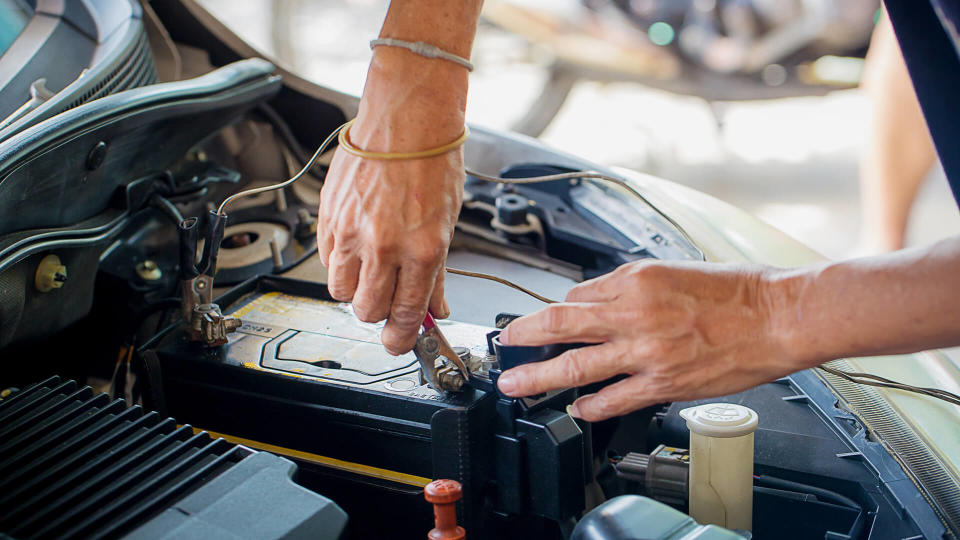
You can’t change a car’s MSRP and you can only negotiate the purchase price down so far. However, once you drive away, you’ll have opportunities throughout the year to lower the cost of owning a vehicle for as long as you own it.
Check Out: 10 Cars That Outlast the Average Vehicle
Try This: How To Get $340 Per Year in Cash Back on Gas and Other Things You Already Buy
These small cost-reduction tips can add up to big savings over time. Keep reading for 50 fairly simple and straightforward ways to cut down on car costs monthly.

Drive Well — This Month and Every Month
Good drivers avoid dangerous situations while saving money.
“Gas expenditures can be considerably reduced by using fuel-efficient driving practices like smooth acceleration and minimizing excessive idling,” said Robert Walden, an experienced mechanic, car enthusiast and founder of Vehicle Freak.
Be Aware: 6 Hybrid Vehicles To Stay Away From Buying
Read Next: 10 New Cars to Avoid Buying in 2024

Don’t Drive Aggressively
According to the Department of Energy (DOE), avoiding aggressive driving practices like rapid acceleration and sudden braking can increase gas mileage by 15% to 30% at highway speeds and 10% to 40% in stop-and-go traffic.
See More: 10 Cars Baby Boomers Should Avoid Buying

Avoid Speeding
The DOE says fuel economy rapidly decreases over 50 mph and “that each 5 mph driven over 50 mph is like paying an additional $0.27 per gallon for gas.”

Avoid Excessive Idling
Walden also mentioned idling, which the DOE confirms is a waste of gas, stating that starting the engine consumes only about 10 seconds’ worth of fuel.
The DOE says to avoid starting your car more than 10 times per day, and that “Assuming 10 starts a day aren’t exceeded, any shutdown longer than 1 minute will save money.”

Use Cruise Control
The DOE writes, “Using cruise control on the highway helps maintain a constant speed and, in most cases, will save gas.”
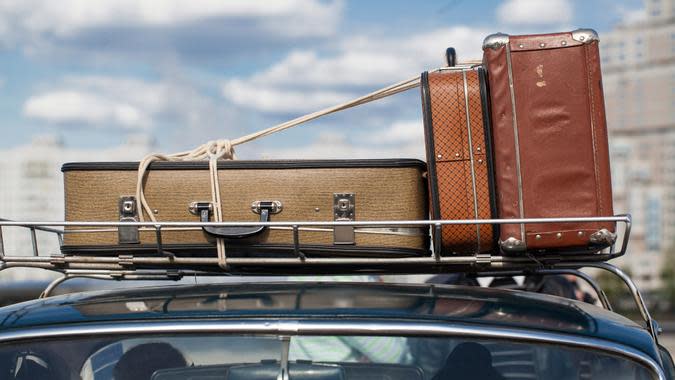
Lose the Rooftop Cargo
If you’re one of the millions of people planning to travel for Memorial Day weekend or the month after or the month after that, the DOE advises that rooftop cargo increases drag and can tank your fuel economy by up to 25%. If you can’t fit all your gear inside, invest in a rear cargo box, which increases fuel consumption by much less.
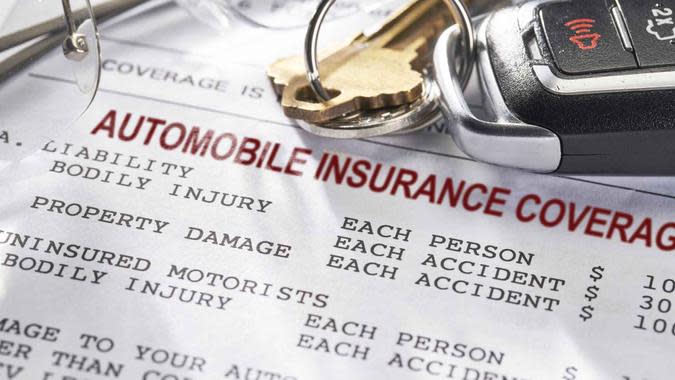
Shop for Cheaper Insurance
Most experts recommend shopping for insurance at least once per year, but it wouldn’t hurt to peruse competitor sites monthly to make sure you’re not paying too much.
“When comparing auto insurance quotes, significant discounts are frequently found,” said Walden.
Find Out: 4 Affordable Car Brands You Won’t Regret Buying in 2024

Share the Road
The more often you share your car or someone else’s, the less you’ll pay in long-term ownership costs. Try some social commuting at least once per month.
“Carpooling and ride-sharing limit wear and tear and reduce fuel usage,” said Walden.

Take Public Transportation
Walden also suggested ditching your car altogether in favor of public transit at least once per month for the same reasons as carpooling — you’ll save gas and reduce wear and tear on your vehicle.

Skip the Trips You Don’t Need To Take
If you can walk, bike or catch a ride to a destination that you don’t need to drive to, giving your car a little break every month can pay long-term dividends.
“Avoiding unnecessary trips is another easy way to save,” said Walden.

Use a Gas App
Every driver should use an app like GasBuddy or Gas Guru not just every month, but every time they fill up.
“Apps can pinpoint the cheapest gas stations nearby,” said Walden.

Get Cash Back When You Fill Up
Use a gas app to find the lowest price on fuel then double-up on savings by getting cash back with an app like Ibotta or Fetch Rewards.
Good To Know: These 10 Used Cars Will Last Longer Than an Average New Vehicle

Wash Your Own Car
Experts recommend getting your car washed frequently to prevent rust, protect your paint and maintain your vehicle’s value — but if you go to a car wash instead of doing it yourself in your driveway, you’ll spend more over time than you’re likely to save.
“Washing your car yourself rather than paying for professional cleaning saves money,” said Walden.
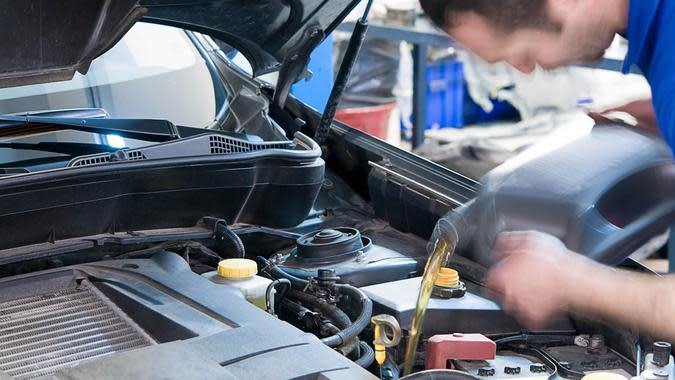
Change Your Own Oil
Like car washes, frequent oil changes prevent long-term damage and protect your vehicle’s value — and similarly, it pays to do it yourself, even if it’s not every month.
“It’s so easy with YouTube these days and will save $50 or more per change,” said Todd Bialaszewski, a certified master mechanic and founder of Junk Car Medics.
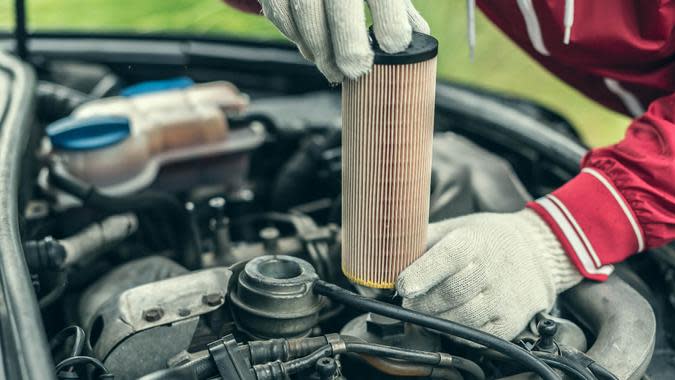
Inspect and Replace Air Filters
You won’t need to replace your air filter every month, but you should inspect it every month just to make sure.
“A clogged filter really cuts into your gas mileage,” said Bialaszewski.
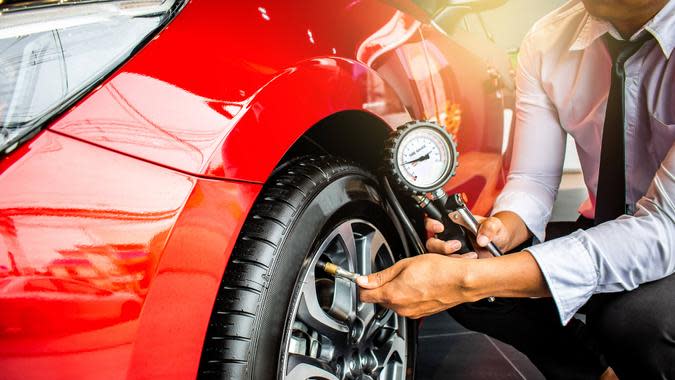
Check Your Tire Pressure
Improper inflation can lead to tire damage, premature wear, sluggish handling, slow braking and poor fuel economy. The one-time purchase of a cheap gauge can let you know exactly when it’s time to add a little air.
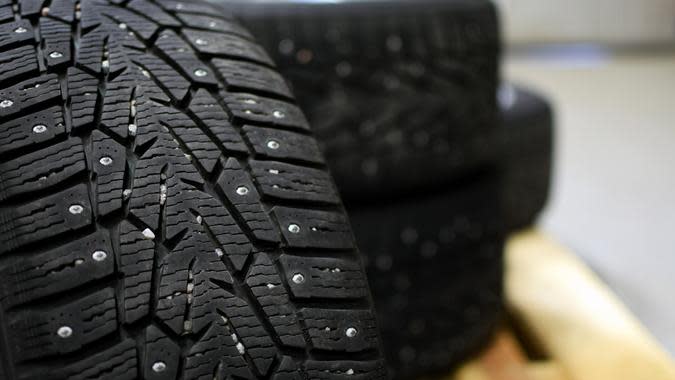
Inspect Your Tire Treads
When you check your pressure, take a moment to inspect your treads for many of the same reasons. The penny test is still the best method. Insert a penny where the treads look lowest and if you can see Lincoln’s head, it’s time for a new tire.
Trending Now: 10 Car Models That Will Have Massive Price Drops in May 2024
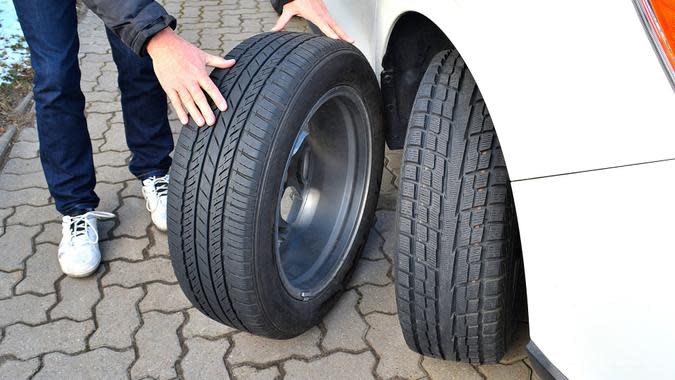
Rotate Your Tires
Frequent rotation is the key to preventing premature wear on any one tire, and while it requires more equipment and know-how than an oil change, it is a DIYable task.
“It keeps even wear and adds thousands of extra miles to your tread,” said Bialaszewski.
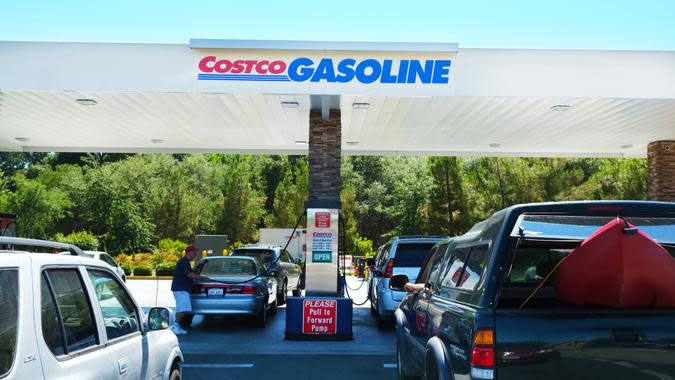
Collect and Spend Loyalty Points
Gas apps are one tool for saving money at the pump. Another is rewards programs at the stations you frequent most often.
“Sign up for various loyalty programs, like getting points for gas,” said Bialaszewski. “They really add up over time if you’re filling up regularly.”

Put Your Car To Work
It’s not just about saving money with your car. You can use it to make money once or twice a month, too.
“Accept the gig economy,” said Ray Pierce, founder and CEO of Zippy Cash for Cars. “Applications such as Uber, Lyft, and DoorDash offer adaptable ways to generate additional revenue to help pay for auto-related costs like maintenance, insurance and gas.”

Rent It Out When It’s Not in Use
If you’re not willing to drive people or food, you can do nothing at all and still cash in on your car with P2P rental platforms like Turo.
“In the gig economy, maintaining your car properly and taking a customer-first stance are essential to increasing your income,” said Pierce.
Turo says the average host earns nearly $11,000 a year renting their unused cars.
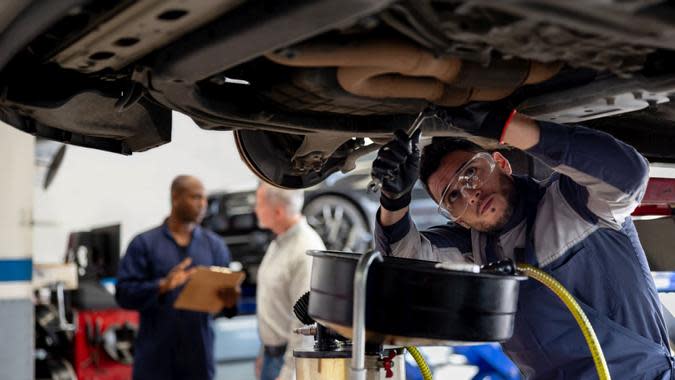
Revisit Your Car’s Maintenance Schedule
If you miss scheduled maintenance, you can wind up spending more than you need to on avoidable repairs or void your car’s warranty. Every month, check in and make sure you’re up to date.
“Following your car’s maintenance schedule prevents costly future repairs,” said Stamatis Zotos, professional mechanic and owner of Corfu Car Rental.
Explore More: 8 Best Luxury Cars for Wealthy Retirees
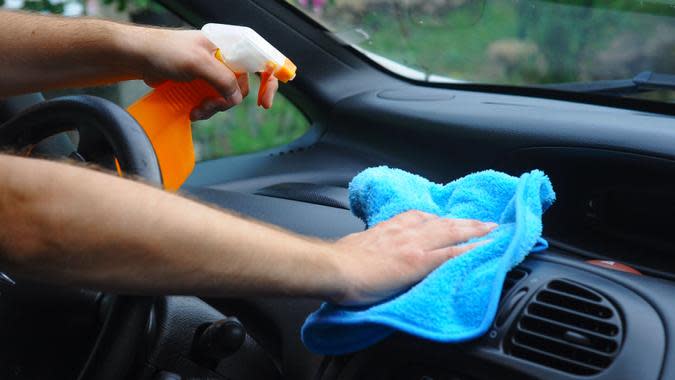
Lighten Your Load
Cars collect stuff, especially if you have a family or pets — but every added pound reduces fuel economy. Once per month, unburden your vehicle of unnecessary weight.
“Lighten your car to improve gas mileage,” said Zotos.

Combine Trips
If you have several things to get at several places throughout the month, schedule them into a few runs as possible.
“Do multiple errands in one trip to save on gas,” said Zotos.
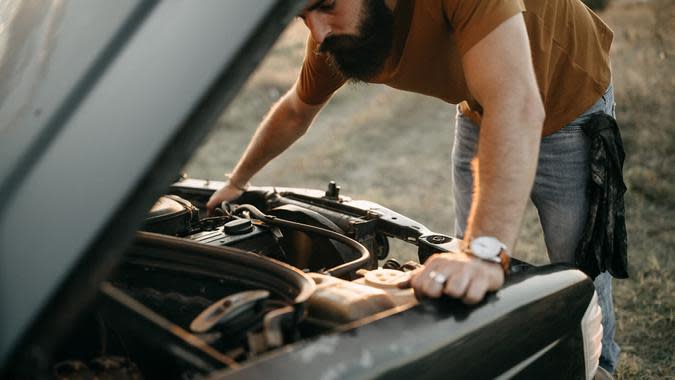
Learn How To DIY Whatever You Can
From replacing spent wiper blades and checking fluids to installing lights and cleaning battery terminals, there are countless tasks you can learn to do on YouTube so you don’t have to pay someone else to do it for you.
“Learn simple car maintenance to save on service costs,” said Zotos.
Take time each month to master just one new task and your newfound knowledge will pay you back.

Use Economy Mode
Many modern cars have a setting that reduces engine output by decreasing acceleration and making the gas pedal less responsive. Switch it on when you can every month to save money over time.
“Engage your car’s economy settings if available,” said Zotos.
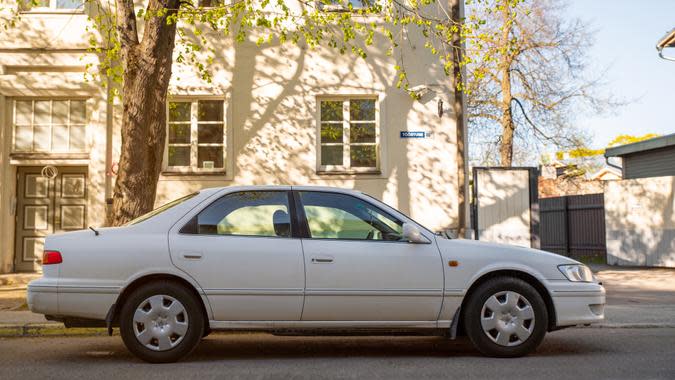
Park in the Shade
Parking your car out of the sun can keep it cool, helping you spend less to stay comfortable.
“This reduces the need for air conditioning,” said Zotos.
Find Out: Why You Should Stick To the One-Tenth Rule When Buying a Car
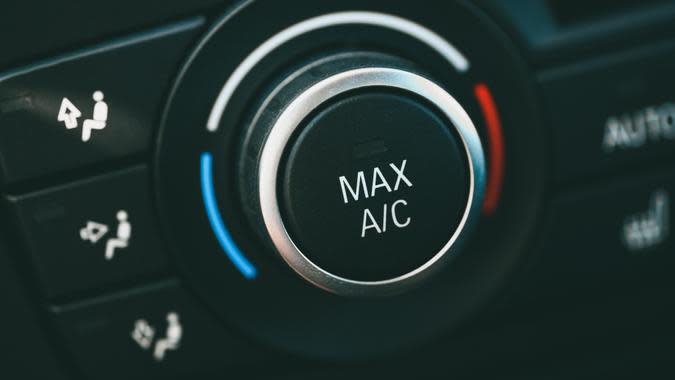
Use Air Conditioning Wisely
It’s important to start with a cool car because according to the DOE, blasting the A/C on a hot day can reduce fuel economy by up to 25%.
“Using the A/C on high can significantly increase fuel consumption,” said Tariro Goronga, CEO of DriveSafe Driving Schools. “Use it sparingly or set it to a comfortable, lower level.”

Keep Your Car Longer
One of the surest ways to spend less on your car is not to buy a new one until you absolutely have to. Don’t sell your car this month, next month or until it no longer makes financial sense to keep maintaining it.
“Extending the life of your car saves money over time,” said Zotos.

Put a Few Extra Dollars Toward Your Car Payment
A little bit extra toward your car payment every month can save you big money in interest payments over time.
“Most auto loans don’t have prepayment penalties, so take advantage of that,” said Bethany Hickey, personal finance expert with Finder.com. “Making a few extra payments throughout the year, or adding a little extra to each car payment, can save you a lot in interest charges and shorten your loan term.”

Avoid Unnecessary Auto Purchases
The surest and simplest way to save money is not to spend it on things you don’t need. If the goal is to save money, the rims, speakers, stereo and touchscreen display you have right now are just fine.

Avoid Rush Hour
Not only are variable tolls and express lanes more expensive during rush hour, but according to AAA, stop-and-go traffic diminishes fuel economy.
Be Aware: 8 Hybrid Cars That Lose Their Value the Fastest
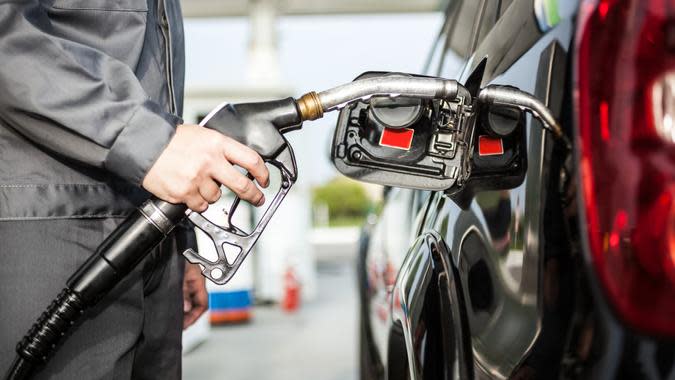
Don’t Buy Premium Gas Unless You Must
Premium gas is beneficial only to vehicles that require it. If your car takes standard gas, as most do, buy that — it’s cheaper.
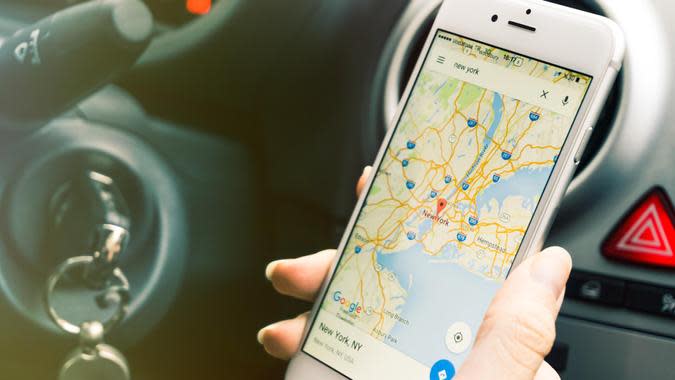
Map Your Route
AAA recommends pre-planning your path even if you’re driving locally instead of blindly relying on GPS to make sure you’re taking the fastest route. This way, you’ll avoid backtracking, turning around and burning fuel unnecessarily.

Use Parking Apps
Use apps like ParkWhiz, BestParking and SpotHero to find the cheapest available parking at your destination.

Park During Off-Peak Hours
According to Parking Network, municipalities and parking operators often use dynamic pricing, which sends prices up during the busiest hours.
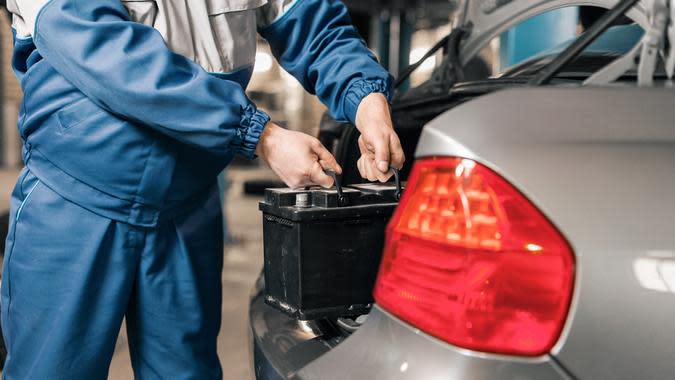
Inspect Your Battery
Physically inspecting your battery for signs of corrosion and other wear can help you prevent problems before they arise and extend your battery’s life.
For You: The 50 Happiest States in America and How Much It Costs to Live There
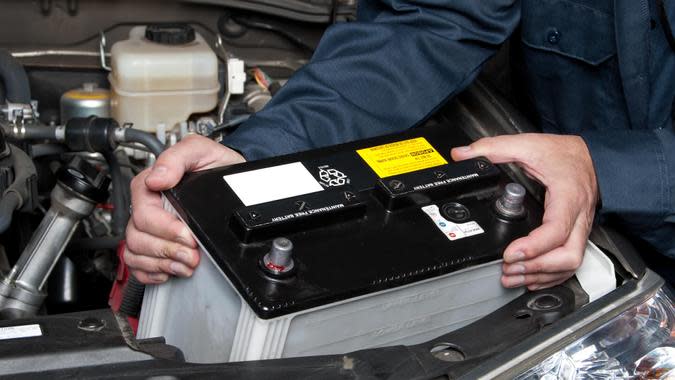
Test Your Battery
The purchase of a simple voltmeter can let you check if your battery is under 12.29 volts and needs to be charged or replaced. It can also tell you if your battery is overcharged.
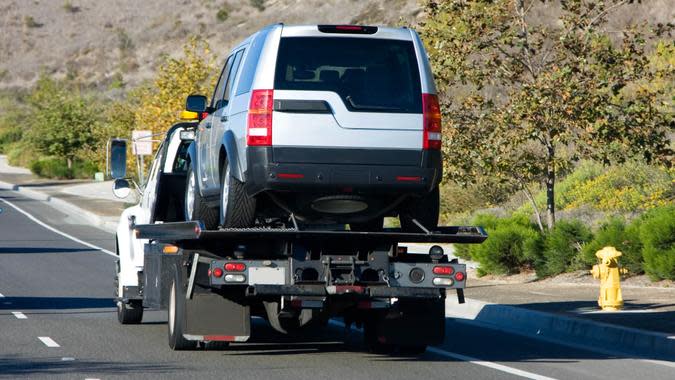
Look for Warning Signs
The easiest way to get stranded and blow a bunch of money on a tow truck is to ignore signs that you need a new battery, including dim headlights, rough idling, slow engine crank, glitchy electrical components and hesitation when rolling down your windows.
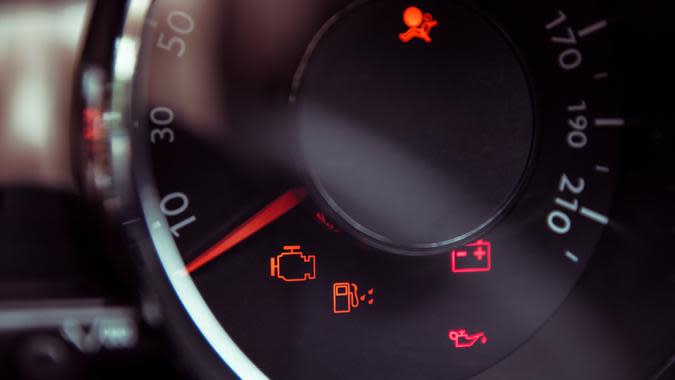
Keep an Eye on Your Dashboard Warning Lights
When an icon lights up on your dashboard display, take notice — and never ignore them or delay action. They range from relatively benign issues like low washer fluid to the dreaded check engine light, but procrastination will never make them go away on their own.
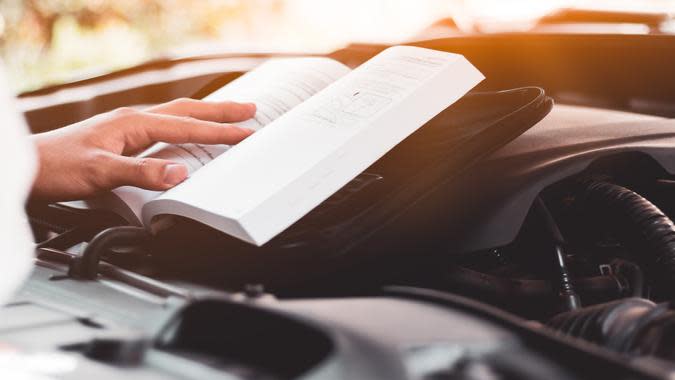
Skim Your Manual
The best way to tune into what your car is trying to tell you is to be familiar with the manufacturer’s manual. You don’t have to read it like a textbook, but take time each month to skim through it and reacquaint yourself with your car’s unique needs and indicators of trouble.
Learn More: 6 Reasons the Poor Stay Poor and Middle Class Doesn’t Become Wealthy
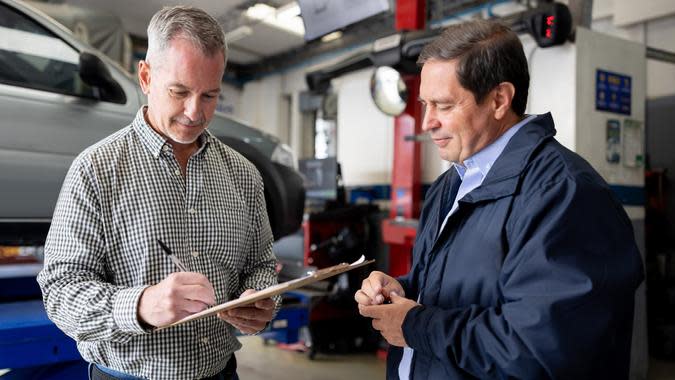
Check for Recalls
Once per month, search the National Highway Traffic Safety Administration database for recalls of your car or equipment, like tires or car seats, at nhtsa.gov/recalls.
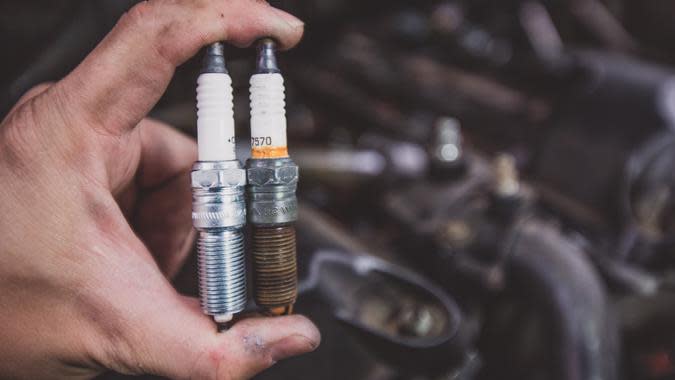
Replace Spark Plugs
According to Eastern Shore Hyundai, “Spark plugs are one of the most important components of your car because they ignite the fuel-air mixture in the engine. If they’re not working properly, your car’s performance (and fuel economy) will suffer.”
Even worse, too many engine misfires can lead to engine failure — check and replace your spark plugs regularly.
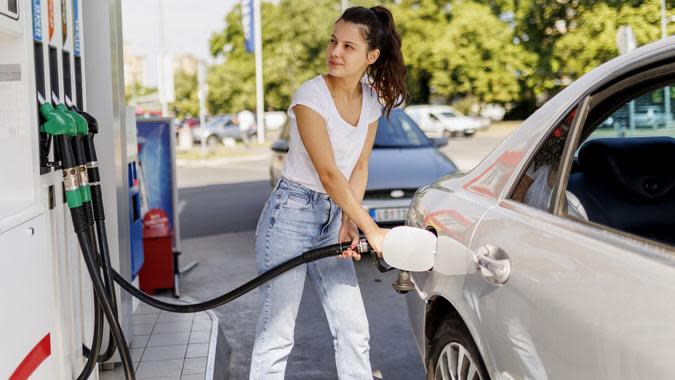
Check Your Gas Cap
According to the Department of Transportation (DOT), loose, missing or damaged gas caps lead to the evaporation of 147 million gallons of fuel annually. You could lose up to 30 gallons of gas per year to the atmosphere if you don’t check yours regularly to make sure it isn’t faulty.
Interesting: 7 Popular Clothing Brands the Middle Class Can’t Afford Anymore
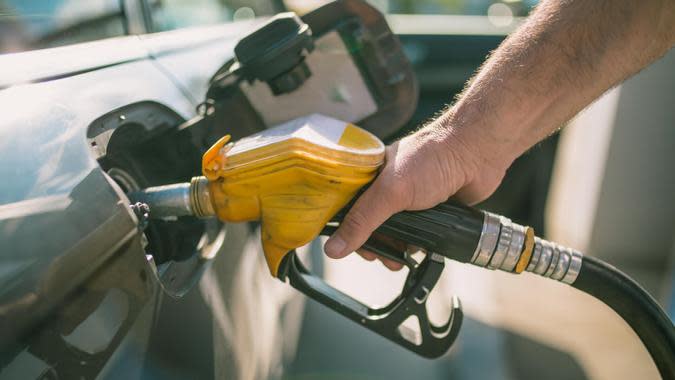
Buy Gas Early in the Week
As we’ve reported, statistics show that gas prices tend to be cheapest earlier in the week, with prices at their lowest on Monday and Tuesday before gradually rising to their weekend highs.

Fill Glass Chips Quickly
If you get a small chip in your windshield, you can repair it yourself with a DIY epoxy kit. Larger or more complex chips might require professional work. Either way, don’t let it linger — small cracks won’t stay small for long.
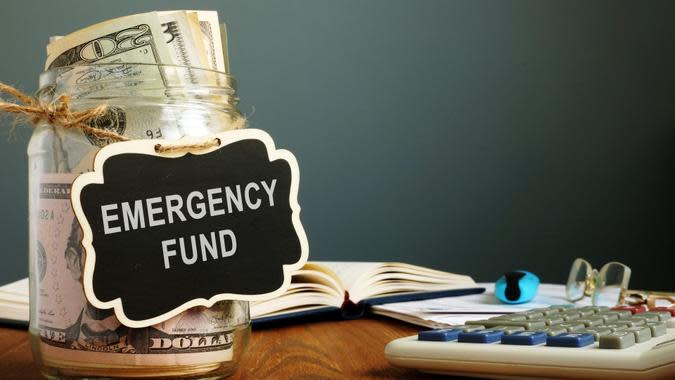
Build an Emergency Fund for Repairs
It has been reported that more than one-third of Americans can’t afford a $500 car repair, but RepairPal says the average driver spends $652 per year on repairs. Consider building a dedicated savings account to deal with the inevitable trip to the mechanic separate from your primary emergency fund to avoid going into debt to keep your car on the road.
Check Out: Here’s What the US Minimum Wage Was the Year You Were Born
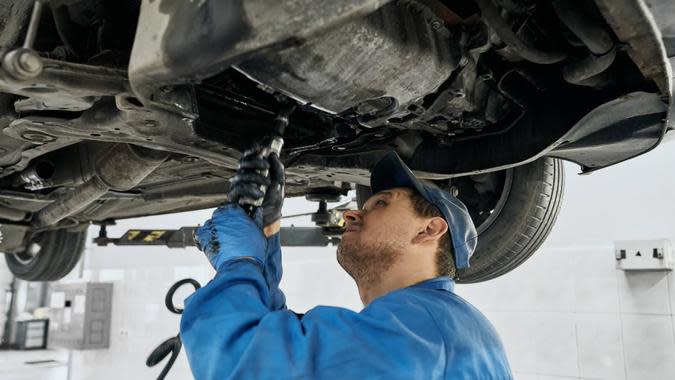
Research Local Mechanics
When the inevitable breakdown occurs, you’ll need a mechanic right away and haste will compel you to pick one without conducting due diligence. The best time to read reviews, shop around and find the shop with the best service at the best price is before you’re in a pinch.
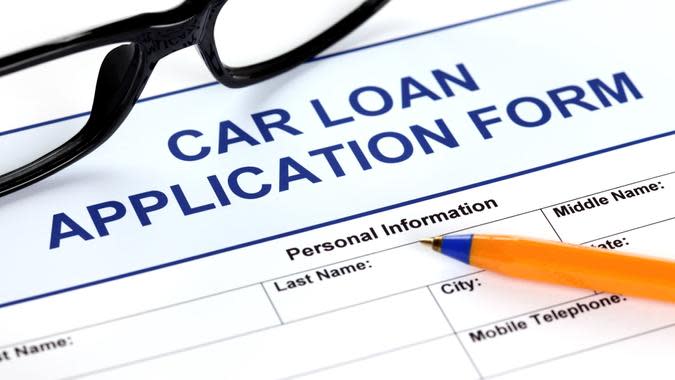
Shop for a Better Loan
Interest rates are high, but once per month, you should peruse banks, credit unions and online brokers to see if it pays to refinance for a better deal than the one you got when you bought your car.

Work To Boost Your Credit Score
In terms of the long game, the best way to save money on your car — and just about every other aspect of your financial life — is to build and maintain a strong credit profile so you earn the most attractive rates on the loans you may need.
More From GOBankingRates
I'm a Bank Teller: 9 Reasons You Should Never Ask for $2 Bills From the Bank
5 Reasons You Should Consider an Annuity For Your Retirement Savings
This article originally appeared on GOBankingRates.com: 50 Ways for Car Owners To Save Money Every Month